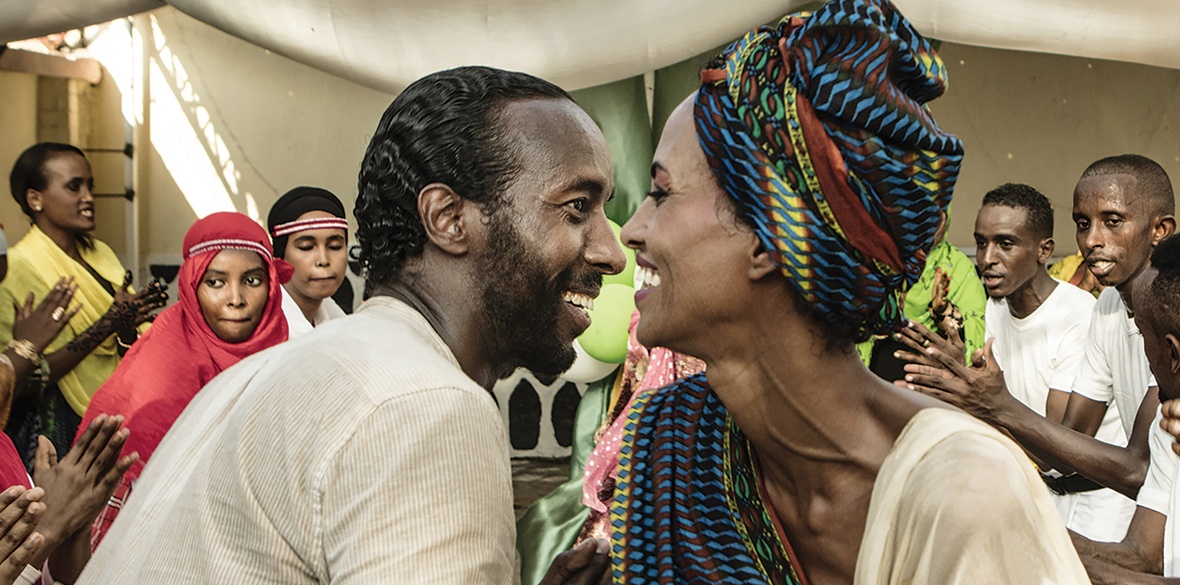This is the last article you can read this month
You can read more article this month
You can read more articles this month
Sorry your limit is up for this month
Reset on:
Please help support the Morning Star by subscribing here
WHAT makes a film “memorable”? What makes it worth referencing, or remembering, or even watching in the first place? Why, at a moment when world events are often stranger than fiction, would we turn from the glorious escapism of big feature films and opt for something tiny, different, and rooted instead in the real?
The “tiny” films listed here are world-changing films, pivotal movies those who care about film should really get to know.
Alcarras, by female Spanish director, Carla Simon, is a semi-autobiographical, bittersweet tale about belonging, rooted in her native village (Alcarras). With stunning camerawork in deliberately natural colour, it is an elegant film, acted with real power and a strong feeling for its ordinary farmers faced with challenging circumstances that threaten to destroy their world.
Robe of Gems is a solid debut from the Mexican-Bolivian filmmaker Natalia Lopez Gallard centred on three women searching for a missing person in rural Mexico. It is a visually striking, moving, and profoundly unsettling study of the impact of male violence on the people’s lives.
In need of money to pay for his wife’s kidney operation, Guled, a gravedigger (The Gravedigger’s Wife) sets off on a journey across East Africa. It is reminiscent of classics like Bicycle Thieves, though here the tool for survival is not a bicycle, but a simple spade.
Guled’s figure with his spade on his shoulder, searching for a job, is a powerful statement, an emblem of class struggle. The film immerses us in Africa’s landscapes and colours, sublime, and poetic, giving voice to those who are not heard, and grounded in a critique of a third-world country’s socio-political mores.
Strikingly honest in its emotions, Habiba, by Moroccan filmmaker Hassan Benjelloun, brings a vivid love story to the screen. In Casablanca, Habiba has failed her entry exams and, ashamed to go back to her rural village, decides to stay in Casablanca.
She finds work in a factory, but then the pandemic starts, and she is no longer able to return to her family. She knocks on the door of her only acquaintance, her blind music teacher who offers her shelter. They start to share his flat as two perfect strangers.
The unseen world of feelings is wonderfully captured. Casablanca, an iconic place of romance in Hollywood’s mythology, is the place were love sparkles in a new direction, everything becomes symbolic and divine.
Luca Guadagnino Bones and All is a well-regarded cannibal coming-of-age story. Travelling in a Chevy pick-up, Maren and Lee are two lonely, damaged people trying to navigate their way through friendship and love alongside the demands of their strange, ferocious, appetites.
By the end, loving and eating, wanting and devouring are made to converge in ways that are both frightening and captivating, thought-provoking and heartbreaking. Obliquely political, unconventional, cannibalism makes for a handy metaphor for the American appetite and propensity for greed.
The two cannibal protagonists, smelly, dirty, poor, and hungry are ready: ready to eat all the wealthy Americans locked in their huge mansions, with their family portraits above the mantelpiece.
Finally, Argentina 1985 by Santiago Mitre offers up a remarkably astute, reflective, and often amusing encounter with the famous 1985 trial of the military junta. Mitre combines comedy and drama to find a precious balance in the story of the young legal team charged with unearthing and revealing the brutalities of the dictatorship as they challenge the ghosts of the past to seek justice.
I watched these films not on my laptop, not in a small screening room, not by myself, but at the cinema with an audience, and because of these surroundings their vision become more magical, more human.
Often the option to watch on a platform is a freedom, but equally often it is a financial problem. Maybe we should re-think the price of cinema tickets now that making movies is easier and more democratic.













